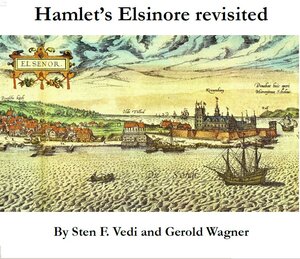
×
![Buchcover ISBN 9783933077578]()
Hamlet’s Elsinore Revisited
The author’s sources of knowledge about Elsinore and Denmark
von Sten F. Vedi und Gerold WagnerHow could so much knowledge about Denmark and Danish circumstances find its way into the drama about ‘Hamlet Prince of Denmark’? For many researchers (as we shall see as we proceed) this has been a pivotal question, but one that have given different answers. We have sought to apply the same approach and found that Polonius has been a key figure in this respect.
Polonius, the man from Poland, is an important character in the drama about “Hamlet, Prince of Denmark”. He was an adviser close to the Danish king Claudius and besides he was the father of Ophelia with whom Hamlet had an intimate relation. Several scholars have speculated as to the real identity of Polonius and wondered if it is possible to recognise a role model. The main purpose of this book is to follow the tracks to the primary sources and reveal the true person hiding behind the name of the character. Is it possible to decide whom the name Polonius refers to and to trace the relevant sources of information in this respect? We shall offer evidence that the name Polonius refers to Henrik Ramel (ca 1550-1610), “Hofmeister” to Frederik II of Denmark. We shall together discover the relevant fingerprints in this case and follow the
lines of communication to and from England. We shall even widen the perspective and discuss why the scene is set at the Danish court. These are so far the main research questions. Nevertheless, by way of deduction, another question becomes relevant: Who could have had access to the communication? This problem cannot be discussed without raising the authorship question. Who was inspired by the old myth about Amleth? Who wrote ‘Hamlet, Prince of Denmark’?


